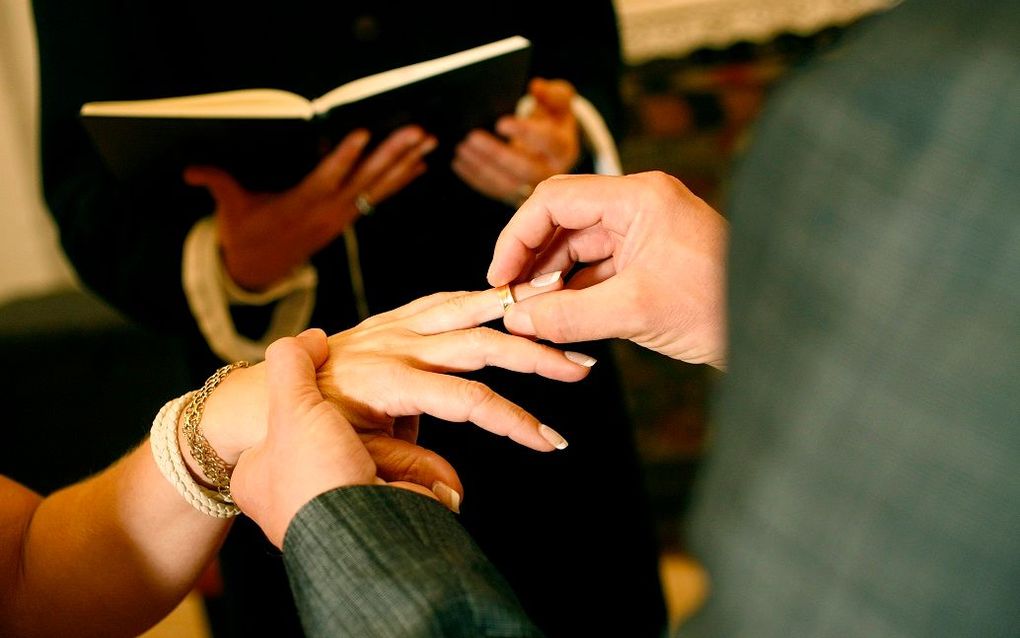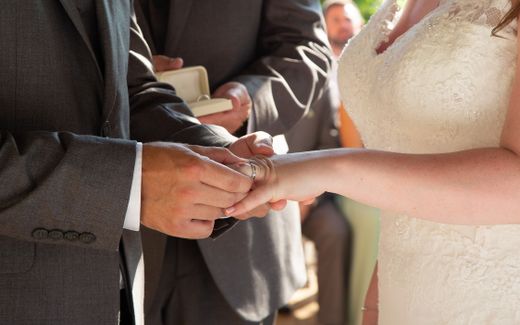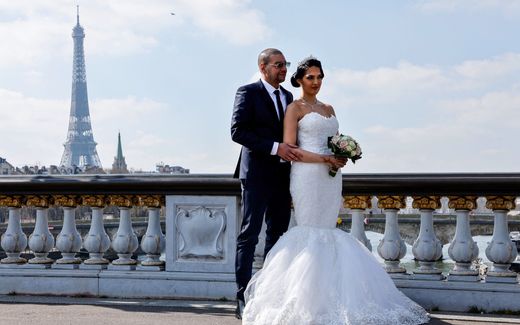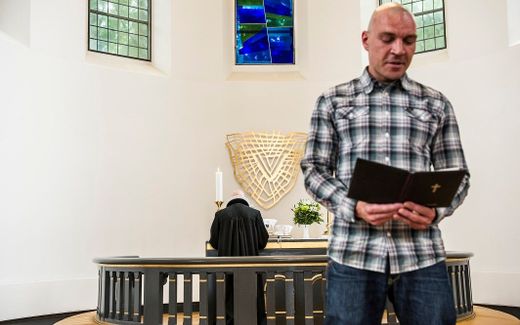Danish bishops want genderneutral wedding ritual

Some priests within the Danish Church prefer the "theologically magnificent and poetic" genderneutral ritual. Photo Folkekirken
Northern Europe
In the Danish marriage form, “husband” and “wife” can be taken out, some bishops think. Instead, “spouse” would be theologically better and more contemporary. This concerns more traditional priests.
The blessing of marriage in the Danish Church could be more modern and theologically beautiful. That is the opinion of Birgitte Kragh Engholm. She is a priest in Copenhagen and has been using a form meant for homosexual couples for years, for which the Church made marriage possible in 2012. “When I have couples for marriage interviews, I usually ask if they have looked at the ritual before, and about one couple out of 50 have. And then I suggest we use this [modern, ed.] ritual, which is so theologically extremely magnificent, close to life and poetic.”
Engholm is not the only one. Kristeligt Dagblad reported on Tuesday that the Danish bishops want to allow everyone to use the gender-neutral marriage ritual, which is used for marrying gay couples. In several ways, this ritual differs from the traditional ritual. Instead of readings that God created man “male and female” and from the New Testament, where Jesus explains that a man must “leave his father and mother and cleave to his wife, and they must become one flesh,” there are various suggestions for alternative readings.
However, not all priests are excited about this. In an op-ed in Kristeligt Dagblad, parish priest Kristoffer Garne points to other missing elements. Key elements, according to him. In the genderneutral text, he writes the laying on of hands on newlyweds and the Lord’s Prayer are missing. “There is no doubt that the laying on of hands with intercession is a central part of the traditional wedding ritual, just as it is a central part of baptism, confirmation and confession. Here, it is confirmed in word and deed that God’s grace and blessing are included in the ritual action and in the arrangement that marriage is.”
If the laying on of hands and the Bible texts become optional, Garne writes, “we may be left with a wedding ritual where it is not clearly said and shown that the marriage rests in God’s arrangement and has God’s word for it. Then the wedding is no longer a church act, but only a civil arrangement carried out in the church room and surrounded by hymns and prayer.”
Outdated
Priest Engholm thinks that the old ritual could be dropped. She argues that many rituals that are being used in the Danish Church are becoming somewhat outdated. “They just go on, and you do not hear what is being said. When I use this [genderneutral, ed.] ritual, the couple has tears in their eyes already at the opening words. It’s not because feelings are particularly important. But it says something that the ritual sets a stage and forms a framework where the couple’s love is at the centre.”

However, Bishop Peter Skov-Jakobsen warns that the Church should not just go about dropping rituals. “We must discuss the status of the current ritual because you cannot simply cancel a ritual. That is why those who think that another ritual will now come and take over for the old one should not be worried,” he says to Kristeligt Dagblad. According to him, the next step in the Danish Church would be to discuss the best way to incorporate both rituals in the marriage ceremonies. “It is usually the priest who decides which ritual is to be used, and if you disagree, you can always find another priest or church that matches your wishes for the wedding better.”
That there is not yet unanimity around this issue seems clear. Especially since another priest, Kristine Krarup Ravn, again warns against Skov-Jakobsen’s words. Liturgical diversity is not necessarily a good thing, she argues. “The danger is that the folk church functions less and less as one recognizable unit. I am completely convinced that the broad majority in the folk church are happy with the wedding ritual that is in the ritual book, and if stories suddenly start circulating that you can choose other rituals, then it can become difficult to manage and navigate.”
Death
It is not the first time Denmark has discussed traditional marriage elements. As CNE reported earlier, the classic ‘Till death do us part’ was questioned earlier this summer. What if most people part each other because of divorce? One of the suggestions is to change the wording to ‘until love separates us’, thus showing that “the couple is aware that love comes over us from outside and is uncontrollable.”
Related Articles








